Pakistan
Four, including three Chinese nationals, killed in Karachi University blast
Published
4 years agoon
By

- Incident occurred near Confucius Institute inside University of Karachi.
- In Charge of CTD Raja Umar Khattab confirms it was a suicide attack.
- Four people, including a Chinese national, sustained injuries.
KARACHI: Four people, including three Chinese nationals, were killed while four others sustained injuries in a car explosion on the premises of the University of Karachi.
According to the Counter-Terrorism Department (CTD), it was a suicide blast and was carried out by a burqa-clad woman.
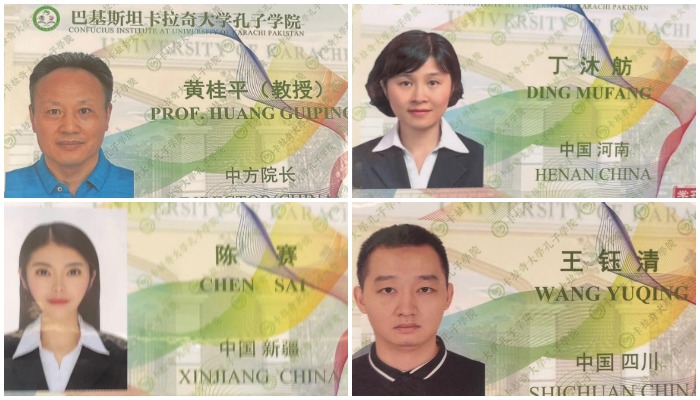
The explosion occurred at 1:52pm in a van near the Confucius Institute — a Chinese language teaching centre at Karachi University. Following the blast, rescue and security agencies rushed to the location and cordoned off the areas, initiating rescue operations.
The deceased Chinese nationals have been identified as the director of the Confucius Institute Huang Guiping, Ding Mupeng, Chen Sai, and their Pakistani driver, Khalid.
Police sources said the van entered the premises through the Maskan gate of the university, they said.
Of the four people who sustained injuries, two have been identified as Chinese national Wang Yuqing and a security guard named Hamid. All of them are currently hospitalised and are receiving treatment.
Meanwhile, the bodies of the deceased have been shifted to Karachi’s Jinnah Hospital for an autopsy.
The explosion was initially reported to have been caused by a gas cylinder. However, the police later said that the blast could have been a suicide attack. Sources further added that the victims were returning to the Confucius Institute from the Institute of Business Administration (IBA).
‘It was a suicide attack’
In Charge of the Counter-Terrorism Department (CTD) Raja Umar Khattab confirmed that it was a suicide attack and a burqa-clad woman seen in the CCTV footage was responsible for it.
“A separatist group has also claimed responsibility for the attack,” Khattab said, adding that the terrorists, after surveillance, targeted the vehicle carrying the foreigners.
He added that Rangers personnel were escorting the vehicle on their motorbikes when the explosion occurred.
“The explosive material used in the blast does not seem to be local-made,” Khattab said, adding that the explosive material consisted of steel ball-bearings and was contained in a schoolbag.
Meanwhile, a police report said that about three to four kilogrammes of explosives were used in the blast.
Earlier, Deputy Inspector General of Police (DIG) East Muqaddas Haider, while speaking to Geo News, had said that it is the bomb disposal squad’s responsibility to determine the nature of the blast, adding that the process of identification was underway.
‘Adequate security arrangments’
Karachi police chief Ghulam Nabi Memon said the bomb disposal unit was determining the nature of the blast and would soon release the report.
“…four people who have been injured are being treated at different hospitals, while the bodies of the deceased have been shifted to Chippa mortuary,” Memon told journalists.
The police official lamented that the people who were killed in the blast were teachers — three foreigners and one Pakistani. He added that it was too early to say who was behind the blast.
The metropolis police chief said “security arrangements were adequate” in the varsity, and in case of a lapse, it will be reviewed and worked upon.
CM Sindh takes notice; meets Chinese consul general
Taking notice of the incident, Sindh Chief Minister Murad Ali Shah directed the deputy commissioner (DC) East and Superintendent of Police (SP) east to reach the spot of the blast immediately.
The Sindh CM issued directives to shift the injured to the Dow University Hospital, situated near the University of Karachi. He directed officials to ensure the provision of all facilities to prevent any casualties.
The chief minister has also asked the Karachi commissioner for a detailed report of the blast.
CM Shah also reached the Chinese Consulate and briefed the consul general on the explosion at the University of Karachi.
He expressed deep sorrow and grief over the demise of three Chinese nationals in the explosion and assured the consul general of a thorough probe into the blast.
Shah vowed that the suspects involved in the blast will be brought to justice. “Some conspirative elements do not like the Pakistan-China partnership,” he said, adding that the elements will be dealt with an iron hand.
The chief minister said that the government assigns great value to the services of Chinese expatriates in the country and the province.
The Chinese Li Bijian thanked the chief minister for his visit and said he was in contact with the families of three Chinese nationals killed in the blast. “Whatever decision is taken in respect of shifting the dead bodies back to China would be informed to the Sindh government,” Li Bijian said.
Condemnations pour in
Strongly condemning the explosion, Prime Minister Shehbaz Sharif expressed grief and sorrow over the loss of precious lives.
“I am deeply grieved on the loss of precious lives including of our Chinese friends in the heinous attack in Karachi today. My heartfelt condolences go to the bereaved families. I strongly condemn this cowardly act of terrorism. The perpetrators will surely be brought to justice,” he tweeted.
I am deeply grieved on the loss of precious lives including of our Chinese friends in the heinous attack in Karachi today. My heartfelt condolences go to the bereaved families. I strongly condemn this cowardly act of terrorism. The perpetrators will surely be brought to justice.
— Shehbaz Sharif (@CMShehbaz) April 26, 2022
PM Shehbaz also made a telephone call to Sindh CM and assured him of full cooperation in the blast-related investigations. The prime minister directed the chief minister to ensure the best medical facilities for the injured.
Meanwhile, Speaker of the National Assembly Raja Pervez Ashraf and Deputy Speaker Zahid Akram have also condemned the blast.
Condemning the blast, PPP Chairman Bilawal Bhutto-Zardari expressed his sorrow over the incident and sent heartfelt condolences to the people of China on behalf of Pakistan.
پی پی پی چیئرمین بلاول بھٹو زرداری کا جامعہ کراچی میں دھماکے کے شدید مذمت
— PPP (@MediaCellPPP) April 26, 2022
پی پی پی چیئرمین نے دھماکے میں قیمتی جانوں کے نقصان پر رنج و غم کا اظہار
چیئرمین بلاول بھٹو زرداری کا پاکستانی عوام کی جانب سے چین کی عوام سے تعزیت کا اظہار @BBhuttoZardari
PTI Chairman Imran Khan also condemned the blast and said demanded a thorough investigation into the matter. He also sent his condolences to the bereaved family members of the deceased. The former premier demanded the Sindh government provide adequate facilities to the injured.
Strongly condemn the terrorist attack targeting Chinese teachers of Karachi University. This is yet another attack with a specific agenda of trying to undermine Pak-China strategic r'ship. We must ensure defeat of this foreign-backed agenda of our enemies.
— Imran Khan (@ImranKhanPTI) April 26, 2022
Foreign Office spokesperson also expressed strong disapproval of the attack and said that the government and people of Pakistan extend their deepest condolences and sympathies to the families of victims who lost their lives in the incident.
“The law enforcement agencies are investigating the incident to apprehend the culprits and bring them to justice. Local authorities are also providing all possible assistance to the injured,” the FO said in a statement.
“The cowardly incident is a direct attack on the Pakistan-China friendship and ongoing cooperation. Pakistan and China are close friends and iron brothers. Pakistan attaches great importance to the safety and security of Chinese nationals, projects, and institutions in Pakistan.”
“Extremely sorry for the loss of precious lives in today’s attack on Chinese Nationals in Karachi. Testing times as Enemies of #Pakistan are targeting our Forces & Friends from Borders to Khi, We must continue to work for a peaceful & prosperous Pakistan in order to defeat them,” wrote Maritime Minister Faisal Subzwari.
Extremely sorry for the loss of precious lives in today’s attack on Chinese Nationals in Karachi. Testing times as Enemies of #Pakistan are targeting our Forces & Friends from Borders to Khi, We must continue to work for a peaceful & prosperous Pakistan in order to defeat them
— Faisal Subzwari (@faisalsubzwari) April 26, 2022
Karachi University had expressed security concerns beforehand
According to sources, the University of Karachi had sent a letter to the Confucius Institute and had expressed concerns related to the security of the foreign teachers.
In the letter, which was sent to the institute 26 days ago, the university had written that the foreign teachers were often seen travelling outside of the university premises without accompanying security personnel.
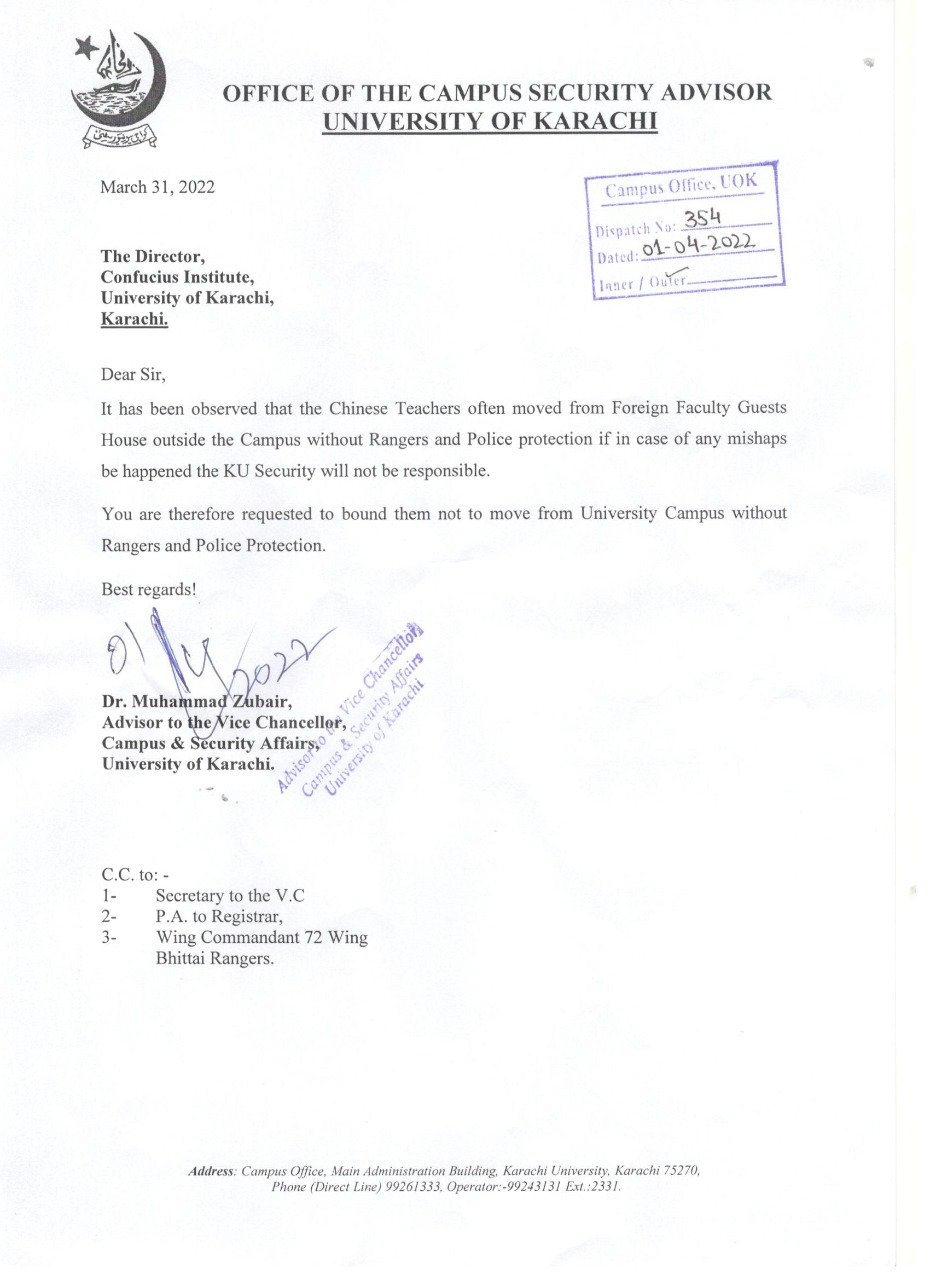
“In case of any mishaps, the university security will not be responsible,” the letter said.
University suspends classes
Following the incident, the University of Karachi, in a notification, announced the suspension of classes on Wednesday, April 27.
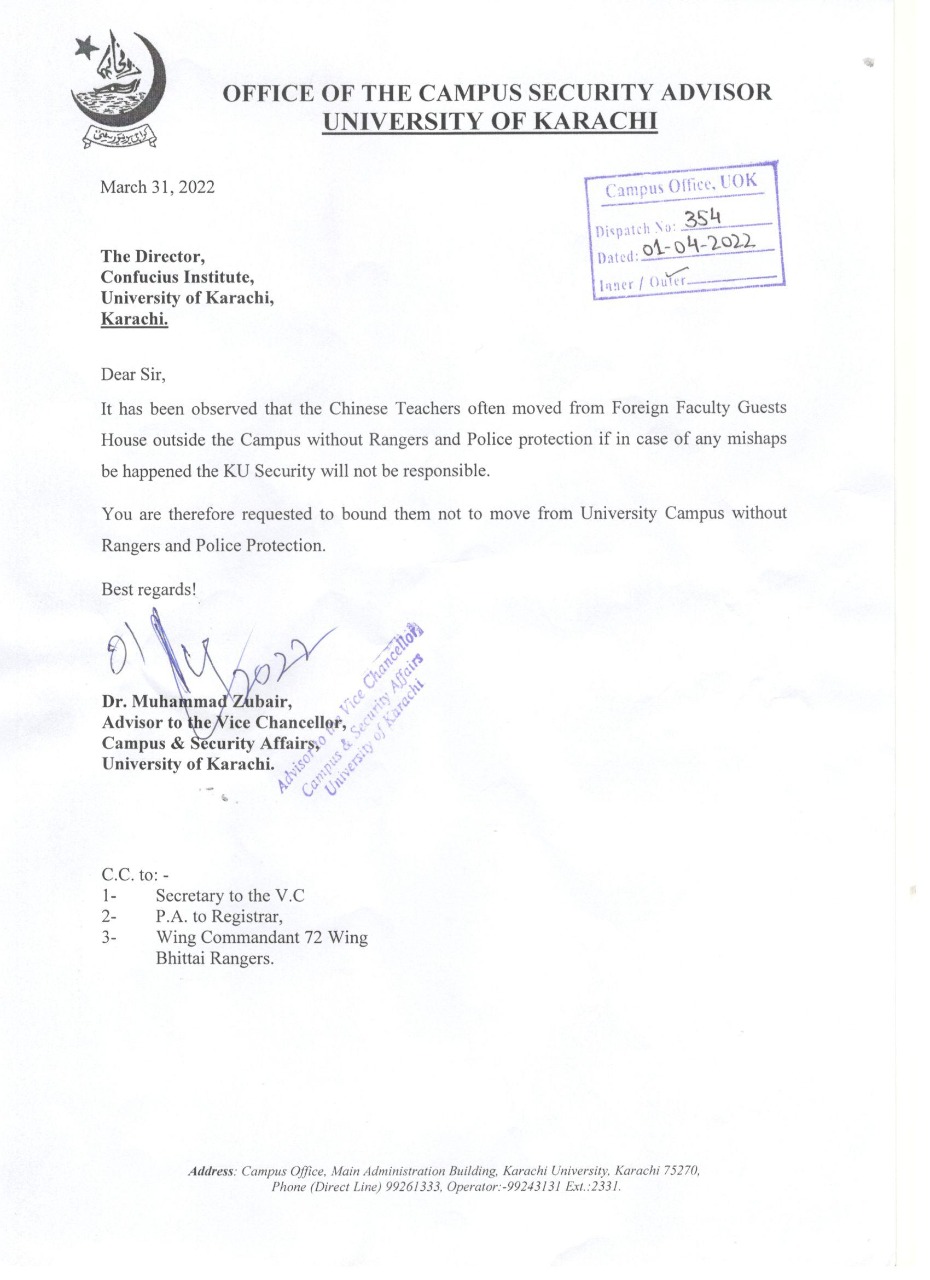
You may like
-
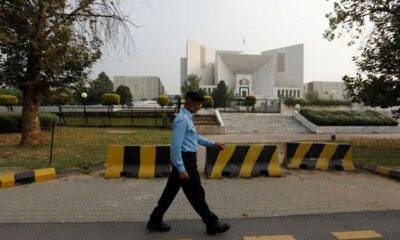

Supreme Court annuls trials of civilians in military courts
-
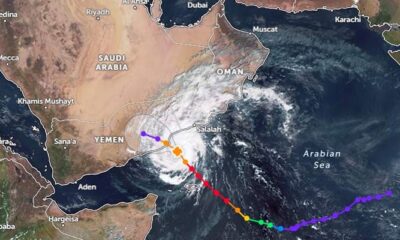

Sea conditions ‘very high’ as Cyclone Tej moves towards northwestward
-


IMF condition: ECC set to green light gas tariff hike today
-


UN experts claim Israeli actions in Gaza ‘violation of international humanitarian law’
-
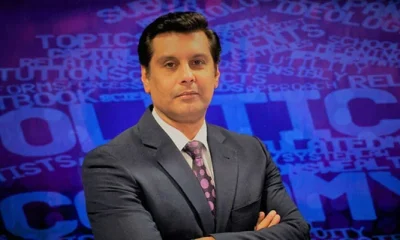

Arshad Sharif’s wife files lawsuit against Kenyan police over journalist’s killing
-


World Cup 2023: Pakistan opt to bowl first against Australia after winning toss

In a unanimous verdict, a five-member bench of the Supreme Court on Monday declared civilians’ trials in military courts null and void as it admitted the petitions challenging the trial of civilians involved in the May 9 riots triggered by the arrest of Pakistan Tehreek-e-Insaf (PTI) chief Imran Khan in a corruption case.
The five-member apex court bench — headed by Justice Ijaz Ul Ahsan, and comprising Justice Munib Akhtar, Justice Yahya Afridi, Justice Sayyed Mazahar Ali Akbar Naqvi and Justice Ayesha Malik — heard the petitions filed by the PTI chief and others on Monday.
The larger bench in its short verdict ordered that 102 accused arrested under the Army Act be tried in the criminal court and ruled that the trial of any civilian if held in military court has been declared null and void.
The apex court had reserved the verdict earlier today after Attorney General of Pakistan (AGP) Mansoor Usman Awan completed his arguments centred around the domain and scope of the military courts to try the civilians under the Army Act.
At the outset of the hearing today, petitioner lawyer Salman Akram Raja told the bench that trials of civilians already commenced before the top court’s verdict in the matter.
Responding to this, Justice Ahsan said the method of conducting proceedings of the case would be settled after Attorney General of Pakistan (AGP) Mansoor Usman Awan completed his arguments.
Presenting his arguments, the AGP said he would explain to the court why a constitutional amendment was necessary to form military courts in 2015 to try the terrorists.
Responding to Justice Ahsan’s query, AGP Awan said the accused who were tried in military courts were local as well as foreign nationals.
He said the accused would be tried under Section 2 (1) (D) of the Official Secrets Act and a trial under the Army Act would fulfill all the requirements of a criminal case.
“The trial of the May 9 accused will be held in line with the procedure of a criminal court,” the AGP said.
The AGP said the 21st Amendment was passed because the terrorists did not fall in the ambit of the Army Act.
“Amendment was necessary for the trial of terrorists [then] why amendment not required for the civilians? At the time of the 21st constitutional amendment, did the accused attack the army or installations?” inquired Justice Ahsan.
AGP Awan replied that the 21st Amendment included a provision to try accused involved in attacking restricted areas.
“How do civilians come under the ambit of the Army Act?” Justice Ahsan asked the AGP.
Justice Malik asked AGP Awan to explain what does Article 8 of the Constitution say. “According to Article 8, legislation against fundamental rights cannot be sustained,” the AGP responded.
Justice Malik observed that the Army Act was enacted to establish discipline in the forces. “How can the law of discipline in the armed forces be applied to civilians?” she inquired.
The AGP responded by saying that discipline of the forces is an internal matter while obstructing armed forces from discharging duties is a separate issue.
He said any person facing the charges under the Army Act can be tried in military courts.
“The laws you [AGP] are referring to are related to army discipline,” Justice Ahsan said.
Justice Malik inquired whether the provision of fundamental rights be left to the will of Parliament.
“The Constitution ensures the provision of fundamental rights at all costs,” she added.
If the court opened this door then even a traffic signal violator will be deprived of his fundamental rights, Justice Malik said.
The AGP told the bench that court-martial is not an established court under Article 175 of the Constitution.
At which, Justice Ahsan said court martials are not under Article 175 but are courts established under the Constitution and Law.
After hearing the arguments, the bench reserved the verdict on the petitions.
A day earlier, the federal government informed the apex court that the military trials of civilians had already commenced.
After concluding the hearing, Justice Ahsan hinted at issuing a short order on the petitions.
The government told the court about the development related to trials in the military court in a miscellaneous application following orders of the top court on August 3, highlighting that at least 102 people were taken into custody due to their involvement in the attacks on military installations and establishments.
Suspects express confidence in mly courts
The same day, expressing their “faith and confidence” in military authorities, nine of the May 9 suspects — who are currently in army’s custody — moved the Supreme Court, seeking an order for their trial in the military court be proceeded and concluded expeditiously to “meet the ends of justice”.
Nine out of more than 100 suspects, who were in the army’s custody, filed their petitions in the apex court via an advocate-on-record.
The May 9 riots were triggered almost across the country after former prime minister Imran Khan’s — who was removed from office via a vote of no confidence in April last year — arrest in the £190 million settlement case. Hundreds of PTI workers and senior leaders were put behind bars for their involvement in violence and attacks on military installations.
Last hearing
In response to the move by the then-government and military to try the May 9 protestors in military courts, PTI Chairman Imran Khan, former chief justice Jawwad S Khawaja, lawyer Aitzaz Ahsan, and five civil society members, including Pakistan Institute of Labour Education and Research (Piler) Executive Director Karamat Ali, requested the apex court to declare the military trials “unconstitutional”.
The initial hearings were marred by objections on the bench formation and recusals by the judges. Eventually, the six-member bench heard the petitions.
However, in the last hearing on August 3, the then-chief justice Umar Ata Bandial said the apex court would stop the country’s army from resorting to any unconstitutional moves while hearing the pleas challenging the trial of civilians in military courts.
A six-member bench, led by the CJP and comprising Justice Ijaz Ul Ahsan, Justice Munib Akhtar, Justice Yahya Afridi, Justice Sayyed Mazahar Ali Akbar Naqvi, and Justice Ayesha Malik, heard the case.
In the last hearing, the case was adjourned indefinitely after the Attorney General for Pakistan (AGP) Mansoor Usman Awan assured the then CJP that the military trials would not proceed without informing the apex court.
Pakistan
Sea conditions ‘very high’ as Cyclone Tej moves towards northwestward
Published
2 years agoon
By
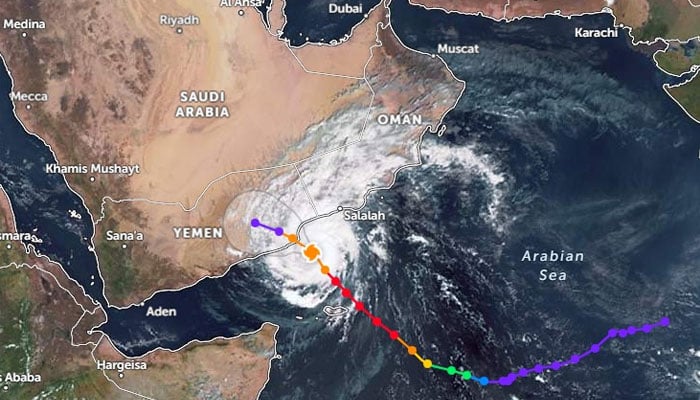
An Extremely Severe Cyclonic Storm (ESCS) named “Tej”, which has been brewing in the southwest Arabian Sea for the past few days, has continued to move northwestward toward the Arabian Peninsula’s coast.
According to the Pakistan Meteorological Department (PMD), over the past 12 hours, Cyclone Tej has been moving in a northwestward direction and is now “centred around latitude 14.4 N & longitude 53.2 °E”.
The update, which was issued today (Monday) at 10:00am (PST), also revealed that the brewing cyclone is situated “about 300km southwest of Salalah (Oman), 220km southeast of Al Ghaydah (Yemen) and 1520km southwest of Gwadar (Pakistan)”.
Additionally, the cyclone’s maximum sustained surface winds are between 150-160km/h, with gusts reaching 180km/h.
Moreover, sea conditions are currently very high, with maximum wave heights of 35ft around the system centre, according to the Met Office.
The system is expected to continue moving in a northwest direction and is likely to cross the Yemen coast, near Al Ghaydah by midnight as a very severe cyclonic storm (VSCS) with winds packing speeds of 120-130km/h and gusts reaching 150km/h.
However, it is important to note that there will be no impact on any of Pakistan’s coastal areas from this system.
According to PMD’s Daily Forecast, the weather is expected to remain dry for the next few days in most districts of Sindh, one of the coastal provinces of Pakistan.
Meanwhile, strong winds and thundershowers are likely to occur in and around some parts of Balochistan today, but dry weather is expected for the next few days.
Pakistan
PCB ‘dismisses’ objections over players support for Palestinians
Published
2 years agoon
By
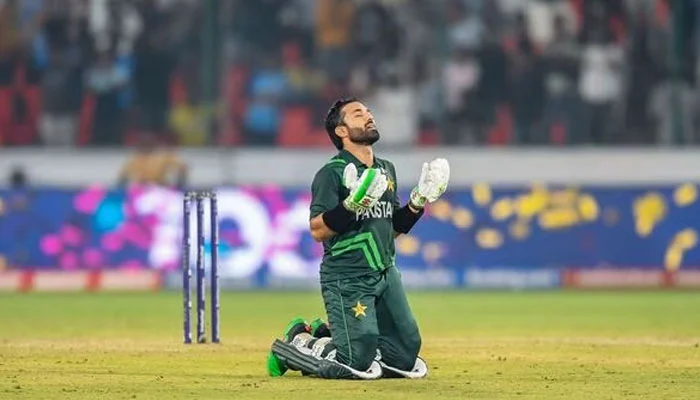
LAHORE: Pakistan’s cricket team, which is currently busy participating in the ICC Men’s T20 Cricket World Cup, has shown their firm support and shared their prayers for all Palestinians suffering at the hands of Israel.
However, there have been many questions raised by Indian fans and cricket experts on the players’ constant support for Palestine asking ICC — the governing body of the game — whether such moves were allowed in the tournament.
According to sources, the Pakistan Cricket Board (PCB) rejected the objections over players’ conduct saying: “The team’s expression of solidarity was a personal decision.”
Pakistan’s national team on Wednesday, posted a picture of the Palestinian flag on their individual X, formerly known as Twitter, accounts to show that they stand in solidarity with Palestine and that they are praying for the people suffering there including children.
☮️ ☮️ ☮️ ☮️ pic.twitter.com/r8E31Jsfya
— Shadab Khan (@76Shadabkhan) October 18, 2023
— Haris Rauf (@HarisRauf14) October 18, 2023
🤲🤲🤲🤲 pic.twitter.com/2hH4Gjmyhn
— Muhammad Nawaz (@mnawaz94) October 18, 2023
Prior to this Pakistan’s wicket-keeper batsman, Mohammad Rizwan, dedicated the team’s victory over Sri Lanka to his “brothers and sisters in Gaza”.
This was for our brothers and sisters in Gaza. 🤲🏼
— Muhammad Rizwan (@iMRizwanPak) October 11, 2023
Happy to contribute in the win. Credits to the whole team and especially Abdullah Shafique and Hassan Ali for making it easier.
Extremely grateful to the people of Hyderabad for the amazing hospitality and support throughout.
Meanwhile, Indian fans and cricket experts used the team’s support for Palestine to create controversies, claiming that the national team had violated ICC rules.
Sources from PCB added that the team is “allowed to express whatever they wanted to,” and that the players “did not violate any code of conduct by the ICC or PCB”.
The Health Ministry in Gaza reports that at least 3,061 Palestinians have died and over 13,750 more have been injured as a result of Israel’s shelling.
Pakistan has categorically condemned the Israeli atrocities and called for an immediate cessation of the bombardment, which has not even spared hospitals or schools, in solidarity with its Palestinian brothers and sisters.
Even Pakistani cricket legends who are not participating in the team anymore showed their support for Palestine.
🤲🏻🤲🏻 pic.twitter.com/8i20CX2Hka
— Kamran Akmal (@KamiAkmal23) October 18, 2023
#FreePalestine pic.twitter.com/IHC74YsxQH
— Zia Ul Haq (@zuh_leftarmfast) October 18, 2023
Moreover, Pakistan is set to face Australia tomorrow (Friday) in M Chinnaswamy Stadium, Bengaluru after a few days of rest.


Supreme Court annuls trials of civilians in military courts

Sea conditions ‘very high’ as Cyclone Tej moves towards northwestward

IMF condition: ECC set to green light gas tariff hike today

Barwaan Khiladi: Kinza Hashmi discusses her role as Alia

Snap launches tools for parents to monitor teens’ contacts

WATCH: Pakistani traveller deported from Dubai for damaging plane mid-air

Learn First | How to Create Amazon Seller Account in Pakistan – Step by Step

Sajjad Jani Funny Mushaira | Funny Poetry On Cars🚗 | Funny Videos | Sajjad Jani Official Team

